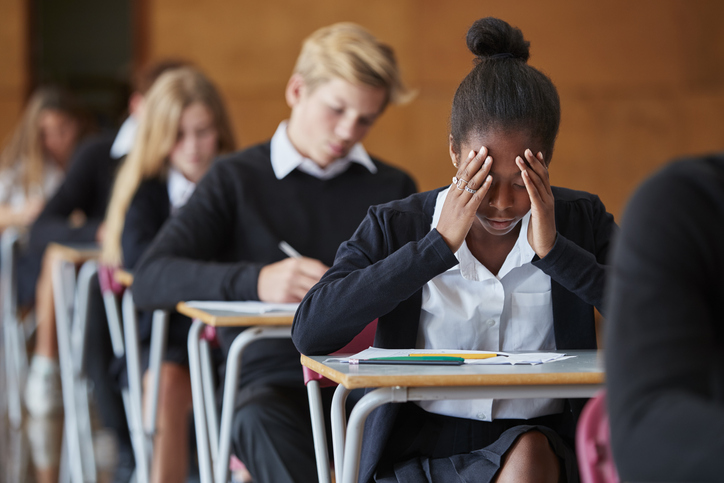
As the years go on, the way youth experience their childhood and adolescence differs drastically from their parents’ experiences. This is due, in part, to social factors and advances in technology that affect the everyday lives of today’s youth (Boyles, 2019). It can be difficult for parents to know how to best support their children when they aren’t familiar with the challenges they are facing.
Clinical counsellors who graduate from Rhodes Wellness College may work with youth clients during their careers, fostering their physical, mental, emotional, and spiritual wellbeing as they encounter obstacles in their lives. Understanding the factors that play a role in the mental health of today’s youth helps counsellors effectively support these clients as they navigate their personal lives. Below, discover common struggles facing young people today.
Extreme Stress Due to Busy Schedules
While anxiety is a natural response to stress, some situations create more anxiety than others, and all individuals handle their anxiety differently. Too much anxiety can turn into a problem when feelings of tension, fear, and worry interfere with an individual’s daily activities and responsibilities (Understanding and Finding Help for Anxiety, 2022).
Today’s youth have a lot on their plate, especially high school students looking to achieve the necessary grades that will get them into their top university choices. Recent research from Stanford found that 56% of students considered homework as their primary source of stress. Additionally, 43% viewed tests as a primary stressor, while 33% put the pressure to get good grades in that category (Parker, 2014). On top of school and homework, students often have many other responsibilities, such as fitting in meals and social time, attending their extracurricular activities and sports practices, and spending time with family.

Counsellor training can teach participants how to help their future clients develop specific habits that help them combat feelings of anxiety, excessive stress, and/or depression. Taking care of oneself is essential to gaining control of these powerful feelings, and tips such as eating healthy, sleeping adequately, and exercising can prove to be helpful (Understanding and Finding Help for Anxiety, 2022).
Lowered Self Confidence Related to Social Media Use
Negative thoughts can lead to mental health challenges, especially in youth that are connected to various social media platforms. A recent survey found that Instagram ranked top of the list for the worst impact on mental health compared to all other platforms (Cramer, 2017). A comparative attitude results from seeing other social media users, such as their peers and public figures, posting about activities, events, and body aesthetics that are unrealistic (Fitzgerald, 2012).
Comparing their own lives to others can lead teens to feel like they aren’t ‘good enough’ (Boyles, 2019). This negative and often pessimistic view of themselves and their worth is a common risk factor for developing depression (Understanding and Finding Help for Depression, 2022). Seeking out sessions with a trained professional is always recommended with anyone dealing with symptoms of depression, as well as incorporating intentional self-care activities such as writing down thoughts and feelings or expressing creativity (Understanding and Finding Help for Depression, 2022).

Inadequate Coping Skills to Address as a Clinical Counsellor
Work as a clinical counsellor can really come into play with the opportunity to teach youth proper coping mechanisms to deal with the heavy challenges they face. Inadequate coping skill development can lead to further decline in mental health states as the impact of situations create increased stress and emotions in youth (Boyles, 2019).
With the ability to carefully listen to clients, assess their situations, and help them find successful solutions, RWC graduates can make great progress with their clients. Valuable, life-changing advice starts with understanding each client and treating them as unique individuals because everyone experiences situations differently. With the extensive practice found at RWC, graduates can confidently head into a career easing the minds of troubled youth.
Interested in a counsellor therapist career?
Contact Rhodes Wellness College for more information!
Works cited:
Boyles, O. (2019). Understanding the Mental Health Crisis Facing Today’s Youth. ICA Health. Retreived on June 01, 2022. https://www.bestcolleges.com/resources/top-5-mental-health-problems-facing-college-students/
Cramer, S. (2017). #StatusOfMind Social media and young people’s mental health and wellbeing. Royal Society for Public Health.
Fitzgerald, B. (2012). Social Media Is Causing Anxiety, Study Finds. Huffington Post Tech. Retrieved on June 01, 2022. https://www.huffpost.com/entry/social-media-anxiety_n_1662224
Parker, C.B. (2014). Stanford research shows pitfalls of homework. Stanford News. Retrieved on June 01, 2022. https://news.stanford.edu/2014/03/10/too-much-homework-031014/
Understanding and Finding Help for Anxiety. Canadian Mental Health Association. Retrieved on June 01, 2022. https://ontario.cmha.ca/documents/understanding-and-finding-help-for-anxiety/ Understanding and Finding Help for Depression. Canadian Mental Health Association. Retrieved on June 01, 2022. https://ontario.cmha.ca/documents/understanding-and-finding-help-for-depression/









